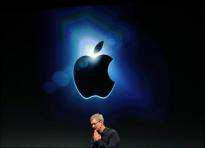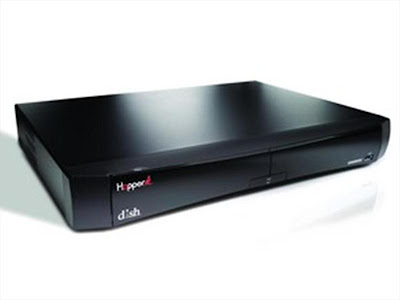Reuter site - In Facebook IPO, bankers seek prestige over fees
This article was sent to you from bombastic4000@yahoo.com, who uses Reuters Mobile Site to get news and information on the go. To access Reuters on your mobile phone, go to:
http://mobile.reuters.com/article/technologyNews/idUSTRE80Q21920120127
In Facebook IPO, bankers seek prestige over fees
Fri, Jan 27 17:15 PM EST
By Lauren Tara LaCapra
(Reuters) - Facebook's initial public offering is likely to set a new standard for how low investment banks are willing to go on advisory fees to win big business.
The world's largest online social network is expected to tap public markets for $10 billion in the coming months in an offering that will value the company at up to $100 billion, according to sources familiar with the planned IPO. It will be one of the biggest U.S. market debuts ever, and a prized trophy for the investment bankers seeking to win lead advisory roles.
That has set up a fierce competition on Wall Street, particularly between the presumed front-runners Morgan Stanley and Goldman Sachs Group Inc, which may offer their underwriting services for as little as 1 percent of gross proceeds, bankers and industry observers said.
That would be far less than the 7 percent fee that smaller deals typically fetch, or the 2 or 3 percent that large deals tend to command.
"The Facebook IPO will be iconic," said James Montgomery, chief executive of San Francisco-based investment bank Montgomery & Co, which advises tech companies on mergers, acquisitions and private placements.
Facebook can easily negotiate a 1 percent fee for the entire group of investment banks that will peddle its shares, Montgomery said, "much to the chagrin of the underwriters."
Such a low fee is practically unheard of for investment banking deals, apart from the offerings of bailed-out companies General Motors Co, American International Group Inc and Ally Financial Inc, which sold shares held by the U.S. government in the aftermath of the financial crisis.
But Facebook has several advantages that will allow the company to haggle for a lower fee: it will be an easy sell as hoards of investors are keen to jump on the social media trend, and even a 1 percent fee would reap $100 million in revenue for investment banks, sending a lead advisor to the coveted No. 1 spot on IPO league tables.
"There's no other IPO like this," said Lee Simmons, a tech specialist at Dun & Bradstreet. "It's kind of the 800-pound gorilla for the tech sector."
The Wall Street Journal reported that Facebook plans to file IPO documents with U.S. securities regulators as early as Wednesday, and is close to picking Morgan Stanley as the lead underwriter.
The typical IPO that raises less than $500 million incurs a 7 percent fee -- what's known as "the 7 percent solution." But as IPOs grow in size, the fee percentage shrinks.
Investment banks usually earn fees of 4 percent to 5 percent on IPOs of more than $1 billion, but deals from Silicon Valley tend to carry a premium. U.S. tech IPOs of at least $1 billion carried an average fee of 5.8 percent from 2000 to 2012, on average, according to Thomson Reuters data.
In the case of Facebook -- whose T-shirt-wearing, 27-year-old chief executive, Mark Zuckerberg, is said to appreciate status updates more than stock brokers -- it's unlikely advisors will be able to command the standard rate.
"These Valley types think this whole process could be automated and they don't have to pay 7 percent to these flashy, French-cufflink-wearing Wall Street types," said Eric Jackson, founder and managing member of Ironfire Capital, a technology-focused hedge fund, who has interacted professionally with executives at Facebook and other social-media companies.
PRICING DILEMMA
Facebook's offering will be the largest ever IPO from Silicon Valley, as well as the largest global high-tech IPO since the dot-com bubble burst. The most recent U.S. social-media IPO, Zynga Inc, raised just one-tenth of the proceeds Facebook is hoping for.
Winning a lead advisory role on Facebook has become a make-or-break contest for tech bankers such as Goldman's George Lee, Morgan Stanley's Michael Grimes and Credit Suisse's Bill Brady.
Morgan Stanley and Goldman Sachs have been in communication with Facebook for months and already offered pitches to its executives in hopes of becoming lead adviser, according to sources briefed on the meetings.
Wall Street is now waiting to hear who will win the coveted "lead left" title, referring to where the top underwriter's name will appear on the IPO prospectus.
"Facebook is one of the most well-known brands around the globe," said George Papaioannou, a business professor at Hofstra University who has studied underwriting competition among investment banks. "The underwriters will have to do very little convincing to investors, and that gives Facebook a huge negotiating advantage."
Investment banking fees are not usually the primary concern for IPO candidates, who must nail down the right offering price and sell shares to the right mix of investors, Papaioannou said.
If the offering price is too high, the company and its underwriters risk burning IPO investors. If the bar is set too low, the stock issuer risks leaving money on the table. And if the mix is not right -- with more short-term traders than long-term investors -- a stock can become highly volatile in the days and weeks following its debut on an exchange.
Zynga, which makes some of the most popular online games that are played on Facebook, is a prime example. Co-managed by Goldman and Morgan Stanley, the IPO was priced at $10 a share in mid-December. IPO investors watched the stock fall 5 percent on the first day of trading. Zynga was quoted at $9.72 on Friday.
Similarly, online coupon-deals site Groupon Inc priced its IPO at $20 a share on November 4, but its shares fell as much as 26 percent in the first two weeks of trading. The stock was trading at $19.78 on Friday. Goldman, Morgan Stanley and Credit Suisse were co-managers of the IPO.
HANDLE WITH CARE
The other edge of the IPO sword can cut just as sharply for hot tech stocks.
LinkedIn Corp, which raised $353 million last May in an IPO priced at $45 a share, watched the stock soar as high as $122.70 on the first day of trading. LinkedIn shares have drifted down to the low $70 range, but the price range to date indicates that the company could have raised another $440 million to $1 billion in extra money if the IPO were priced more aggressively. Morgan Stanley was in the lead left position.
A sharp fluctuation in price soon after Facebook's IPO "would really embarrass Facebook and the underwriters," given the recent history of social-media IPOs, said Papaioannou
The Zynga, Groupon and LinkedIn deals garnered fees of 3 to 5 percent.
To be sure, the banks that are vying for a lead position on Facebook's IPO will have to do more than lowball on price. They will also have to convince the Palo Alto, California-based company that the deal will go off without a hitch.
As Facebook's size and influence have grown in recent years, its actions -- whether changes to privacy policies on its popular networking site, or its interactions with Wall Street bankers -- have come under intense public scrutiny.
Goldman's handling of a private sale of $1.5 billion worth of Facebook shares to wealthy clients last year stirred enough controversy that the bank was forced to limit the offering to non-U.S. investors.
That misstep may have cost Goldman some goodwill with Facebook, industry observers said. And, as a company that makes money from a broad base of users, it also forces Facebook to consider whether its IPO will give unfair advantages to well-heeled investors.
"Two reasons I think Morgan Stanley will get the lead: one, they have a great retail distribution platform with the Smith Barney franchise and, two, I don't think Facebook is overly happy with Goldman Sachs," said Jeff Sica, president and CEO of SICA Wealth Management, who has bought shares of Facebook in private, pre-IPO markets for clients.
Morgan Stanley was the top bookrunner for global high-tech IPOs last year, with $2.2 billion in global proceeds and 10.9 percent market share. It also led the pack in U.S. high-tech IPOs, according to Thomson Reuters data. Goldman Sachs was the runner up with $1.9 billion in global fees and 9.2 percent market share, and ranked No. 3 in U.S. high-tech IPOs behind JPMorgan Chase & Co.
A less measurable but equally important factor in obtaining the lead IPO position is whether bankers can connect with decision-makers at Facebook on a personal level.
"It's really going to be the banker that understands and is sensitive to Zuckerberg and the executive team's needs," said Dun & Bradstreet's Simmons. "Whoever does that successfully will get the bragging rights, the proverbial brass ring of tech IPOs."
(Reporting By Lauren Tara LaCapra, editing by Tiffany Wu)










